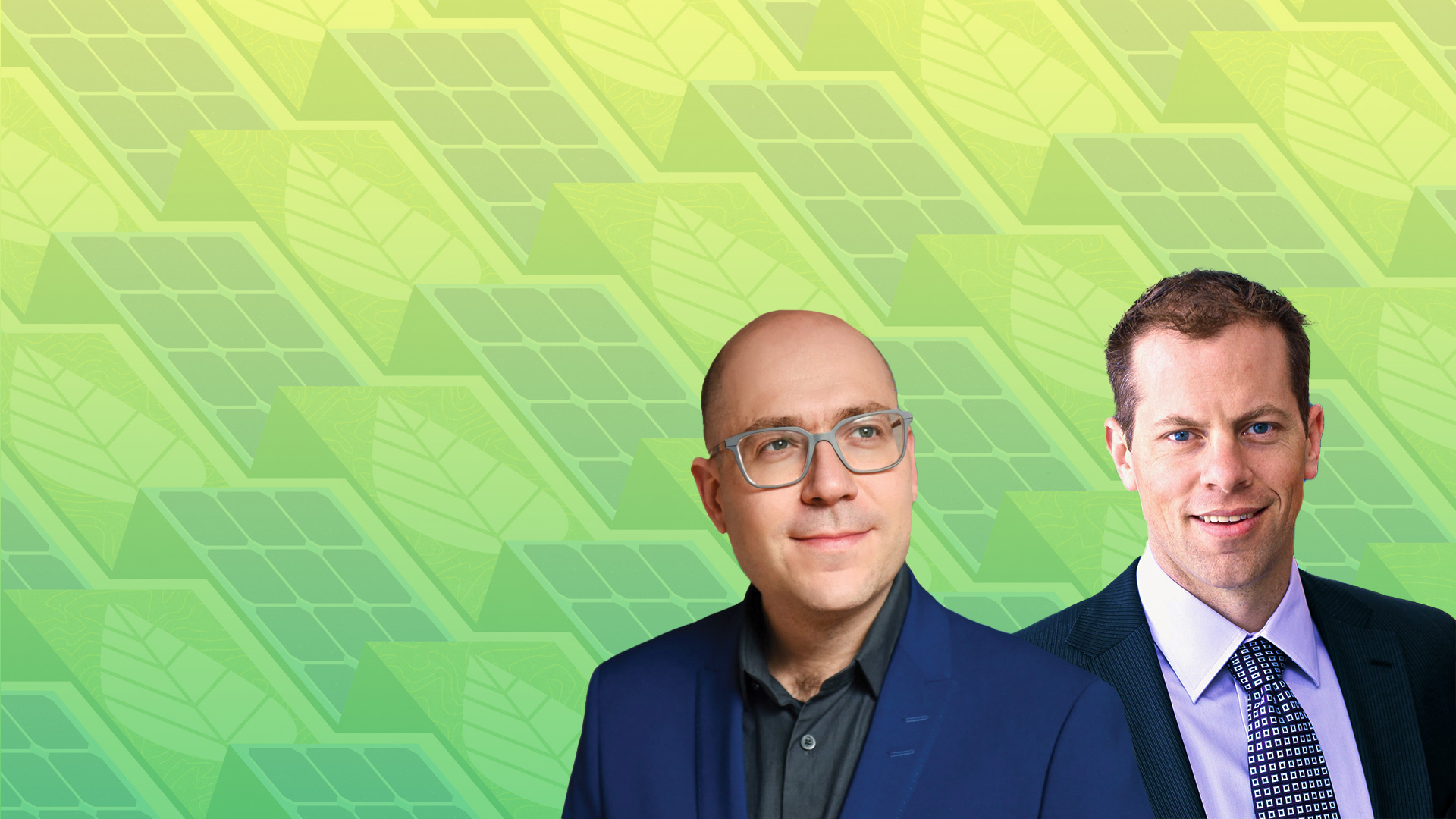By: Liz Do
7 Jul, 2023

The Earth is in a carbon imbalance, as emissions continue to far exceed the rate in which they are removed. CIFAR’s Accelerated Decarbonization program aims to find new ideas and scalable solutions to restore the carbon balance.
Previously called the Bio-inspired Solar Energy program, it was renamed after discussions among members and its program co-directors, Alán Aspuru-Guzik (Lebovic Fellow and Canada CIFAR AI Chair at Vector) and Curtis Berlinguette, to veer the program towards the relevant problem of global carbon capture.
“Our name change reflects our unwavering dedication to accelerating decarbonization,” says Berlinguette. “United by this common goal, our program’s multidisciplinary research will delve into the fundamental sciences and discover novel approaches to solve pressing climate-related problems.”
“We’re really excited about focusing on the carbon cycle and what it means for the Earth,” says Aspuru-Guzik, who adds that the program will look at out-of-the box ideas for global decarbonization, as well as how to make useful — and scalable — devices to capture carbon from the atmosphere.
“Given that CIFAR is about big ideas and advancing fundamental research, we want our program to think about the fundamental questions around decarbonization, around scale and cost and feasibility,” adds Aspuru-Guzik.
The Bio-inspired Solar Energy program was founded in 2014 and renewed in 2020. It previously focused on conceiving and developing concepts that would enable energy-relevant, demanding chemical transformations, with inspiration from those easily achieved in biological systems.
Over the years, the program has led to advancements in sustainable energy — from developing an artificial system that mimics principles of photosynthesis to produce valuable carbon-based products from CO2, to new insights into bacterial CO2 utilization that could lead to novel conversion tools of the future. This work and other environment-focused initiatives have long been supported by generous CIFAR donors, including the Arthur J.E. Child Foundation, Chisholm Thomson Family Foundation, McLean Group, The George Cedric Metcalf Charitable Foundation, Gerald Heffernan, RBC Foundation and Trottier Family Foundation.
The work of the Accelerated Decarbonization program will build on the success of its predecessor, refining its focus towards building a sustainable future and planet, this time with a lens on carbon. Continued rising carbon emissions are a key factor in global warming, causing glaciers to melt, rising sea levels, and extreme heat waves. In 2022, the world’s population emitted 36.8 billion tonnes of CO2, an increase of more than 300 million tonnes from the previous year.
With the change in the program’s direction, the co-directors envision an ongoing evolution of the program’s membership, bringing in members at the interface of academia and industry.
“We are growing our CIFAR program to serve as a hub for provocative and bold thinking,” says Berlinguette. “We will transcend boundaries by welcoming new program members with a proven track record of collaboration and innovation, even if they are not directly linked to CO2 or energy sciences.”
The program’s next meeting, under its new name and direction, will take place in September 2023. Aspuru-Guzik and Berlinguette say they are looking forward to an exciting kickoff of discussions and new collaborations.
Berlinguette notes that the program, and CIFAR, have a “technology agnostic” approach, “which gives our members the freedom to pursue daring and diverse paths toward a carbon-balanced future.”
That freedom is an integral part of the CIFAR model, notes Aspuru-Guzik. “CIFAR provides this very progressive way of getting together, uniting some of the top minds in the world from multiple disciplines in one room, and letting them use that time to optimize deep thinking,” he said.
The co-directors think the program and its members are well-positioned to make a positive impact on climate change.
“Many clean energy initiatives around the world pursue efficiency benchmarks for particular technologies,” says Berlinguette. “Accelerated Decarbonization is taking a fresh approach. By instead emphasizing the fundamental sciences of the carbon cycle and carbon balance restoration, we will generate unconventional ideas that challenge the status quo.”
“We’re poised in this century to actually tackle these big problems related to climate change,” adds Aspuru-Guzik. “That’s why I think it’s a very exciting time to move our program in this direction, and gain all this momentum to try to solve the carbon problem.”
CIFAR is a registered charitable organization supported by the governments of Canada and Quebec, as well as foundations, individuals, corporations and Canadian and international partner organizations.